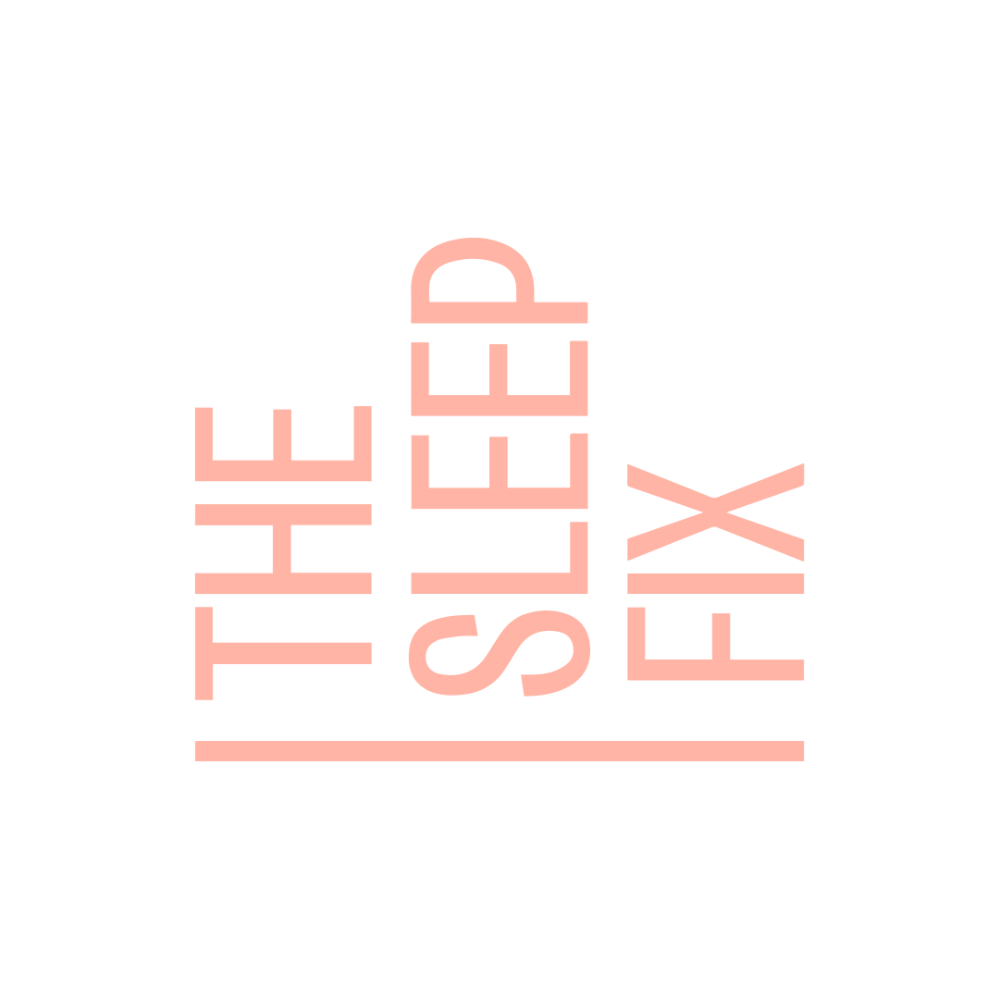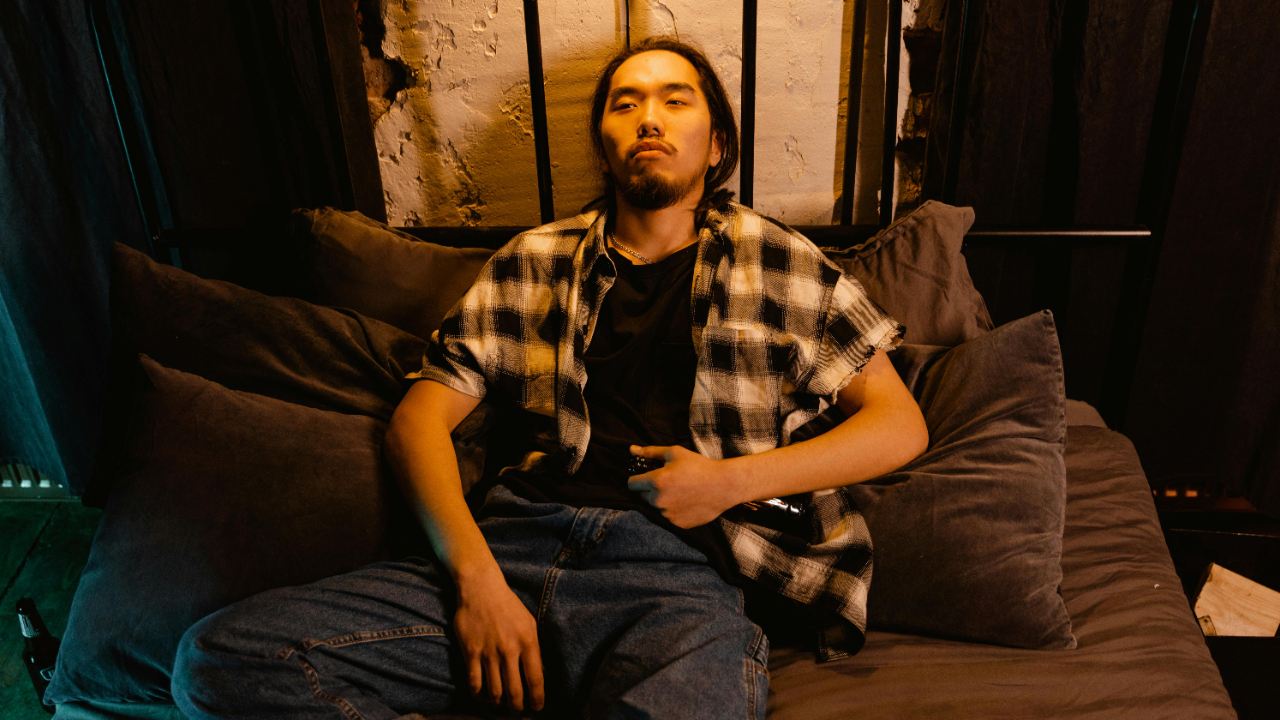Conquering Anxiety-Related Insomnia: 5 Tips for Better Sleep

Living with anxiety has many challenges, but arguably one of the most frustrating is insomnia. Anxious thoughts not only make it hard to fall asleep they make it hard to stay asleep throughout the night, and they make it hard to fall back asleep if you do wake up overnight. Plus bad sleep makes anxiety worse, feeding a seemingly relentless cycle. Thankfully, there are things you can do to break that cycle and mitigate how anxiety impacts your sleep.
If you're tired of tossing and turning, and you're ready to get that cycle moving in the right direction, this blog post is for you.
Understanding Anxiety-Related Insomnia
Anxiety and insomnia often go hand in hand. When we experience anxiety, our nervous system triggers our fight-or-flight response, the same biological response we experience when we're in danger. This heightens all of your senses. Your heart rate and breath might speed up, your muscles get more tense, your pupils dilate to take in more light, and your hearing gets more sensitive.
All these things can be literally lifesaving when you need to be alert in the face of danger, but it’s extremely unhelpful when you're trying to sleep. The results are sometimes obvious and sometimes more subtle, but either way, they leave you feeling exhausted. Here are a few tips to help.
Tips for Better Sleep With Anxiety
1. Schedule Worry Time
Scheduled worry time, also known as constructive worry, is an evidence-based technique shown to help people with anxiety-related insomnia. It might sound odd but by setting aside a designated time to focus on your worries and concerns, you teach your brain that THIS is the time for worrying, not when your head hits the pillow. But don't stop there. After writing down your worries, write down the next step to resolving each one. Our free Racing Mind Reset tool provides an easy template to get this all done in just a few minutes. And here's the magic: giving yourself that opportunity to address and problem-solve your worries in a structured manner removes the need for your brain to try to do that problem-solving while you're trying to sleep. That not only helps improve your sleep and promotes a sense of calm and relaxation at bedtime, it can also help your mental well-being during the day as well.
2. Establish a Consistent Wakeup Time
Having a consistent wake-up time can be really helpful if you struggle with anxiety-related insomnia. This helps regulate your body's internal clock, aka. your circadian rhythm, so you start getting wake signals at the right time and sleep signals at the right time.
But here's the thing - having a consistent wake-up time does more than just help with sleep. It also gives you a sense of structure and routine, which can be a real comfort when you're dealing with anxiety. It's like having some control over your day, which can reduce feelings of uncertainty and stress.
And while you may have been told to keep a consistent bedtime, that often leads people to go to bed when they're not sleepy yet, which just breeds frustration and makes insomnia worse. By focusing on wake-up time instead, you're focusing on the part you can control. And by setting your body clock eventually causes you to feel sleepy around the same time too. So it naturally creates that regular bedtime if you stick with it.
3. Get Sunlight or Bright Light at Your Wakeup Time
The benefits of a consistent wakeup time are multiplied if you add bright light into the mix. Light is the most powerful tool to set our body clock and regular our circadian rhythm. So getting bright light and, ideally sunlight first thing in the morning tells your brain it's time to wake up, and doing so also helps your brain know when it's bedtime. This promotes a healthy sleep-wake cycle, making it easier to fall asleep at night and wake up feeling refreshed in the morning. But sunlight also:
- Stimulates the production of serotonin, which boosts mood and promotes feelings of happiness and well-being
- Triggers the release of vitamin D, which is essential for maintaining strong bones, a healthy immune system, and good sleep
- Increases alertness and can improve cognitive function and productivity throughout the day.
If you can't get actual sunlight, try a therapy light instead.
Also, note that if your problem is waking up too early, be sure to stay in dim light until your target wake-up time. Do not expose yourself to bright light during any time period when you want to be asleep.
4. Leave Bed If You're Feeling Frustrated
Leaving bed when feeling frustrated during episodes of insomnia can have several benefits. Firstly, it helps break the negative association between the bed and frustration, allowing you to create a more positive sleep association. By getting out of bed, you can engage in relaxing, enjoyable activities, which can help reduce stress and anxiety -- unlike staying in bed trying to force yourself to sleep. This can actually make you feel sleepy again much faster, and it also reminds your brain that bed is for sleeping, not for stressing out.
5. Cognitive Behavioral Therapy for Insomnia
Did you know sleeping pills aren't the gold standard treatment for insomnia? It's actually CBT-I, short for Cognitive Behavioral Therapy for Insomnia. So if your insomnia's been around long enough seek out a provider trained in CBT-I. For a self-help approach our new course The Sleep Fix Method is based on CBT-I techniques and walks you through practical, evidence-based solutions to address your insomnia at the source.
There is a Better Way
Conquering anxiety-related insomnia is possible with the right strategies, you are not just a "bad sleeper" and this isn't just "the way you are." You have a temporary problem that is fixable. Don't let anxiety rob you of the rejuvenating sleep you deserve. You've got this!







